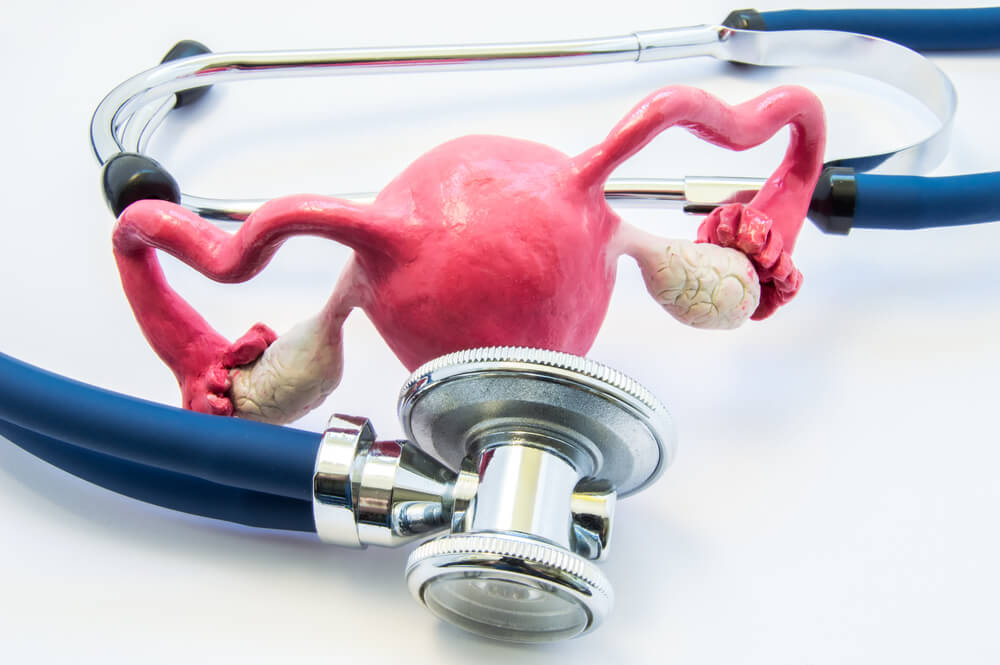The prospect of undergoing a medical procedure can be daunting, especially when it involves delicate areas of the body like the uterus. Endometrial biopsy, a common diagnostic procedure, is no exception. In this comprehensive guide, we will discuss about what to expect from the process, is an endometrial biopsy painful and how to prepare for it in general, addressing common concerns and providing valuable insights to ease your mind.
When talking about in office procedures in Fort Lauderdale, FL there are many different options patients can choose from, so it is just a matter of preference and specific personal needs of each individual. Medical centers such as Serene Health OBGYN & Wellness earn their reputation as excellent healthcare providers through their unwavering commitment to patient-centered care. At centers like these, patients are not just medical cases but individuals deserving of empathy, respect, and personalized attention. Every interaction, from the first appointment to ongoing care, reflects a dedication to understanding each patient’s unique needs and concerns. With a holistic approach to healthcare that integrates cutting-edge technology, evidence-based practices, and a team of skilled professionals, these medical facilities ensure the highest quality outcomes.
What is an Endometrial Biopsy?
Endometrial biopsy is a diagnostic procedure commonly performed by healthcare providers to examine the tissue lining the uterus, known as the endometrium. This procedure is typically recommended to investigate various gynecological concerns such as abnormal uterine bleeding, infertility issues, or to assess for conditions like endometrial cancer.
During the biopsy, a tiny sample of tissue is collected from the endometrium for further analysis. This sample is then examined under a microscope by a pathologist to identify any abnormalities or signs of underlying conditions. Endometrial biopsies are valuable diagnostic tools that provide essential information to guide treatment decisions and ensure the optimal management of gynecological health issues.
Why is an Endometrial Biopsy Done?
Endometrial biopsies are conducted for diagnostic purposes. Your healthcare provider may recommend this procedure in the following cases:
- Abnormal Uterine Bleeding: Endometrial biopsies are often performed to investigate the underlying causes of abnormal uterine bleeding, such as irregular menstrual cycles, heavy menstrual bleeding, or postmenopausal bleeding.
- Evaluation of Infertility: In cases where a woman is experiencing difficulty getting pregnant, an endometrial biopsy may be recommended to assess the uterine lining’s receptivity to implantation and to investigate potential factors contributing to infertility.
- Monitoring Hormone Therapy: Endometrial biopsies may be utilized to monitor the effects of hormone therapy, such as estrogen replacement therapy or fertility treatments, on the endometrium and ensure that the treatment is achieving the desired results.
- Detection of Endometrial Cancer: Endometrial biopsies are a crucial tool in diagnosing endometrial cancer, particularly in individuals with abnormal uterine bleeding or other concerning symptoms. Detecting cancer early through biopsy can lead to more effective treatment and improved outcomes.
- Evaluation of Endometrial Hyperplasia: Endometrial hyperplasia, a condition characterized by abnormal thickening of the endometrium, may necessitate an endometrial biopsy to assess the extent of the hyperplasia and guide treatment decisions.
- Investigation of Recurrent Miscarriages: For individuals experiencing recurrent miscarriages, an endometrial biopsy may be performed to evaluate the endometrial lining for abnormalities or factors that could be contributing to pregnancy loss.
- Diagnosis of Endometrial Polyps or Fibroids: Endometrial biopsies can help diagnose endometrial polyps or fibroids, which are noncancerous growths in the uterus that may cause symptoms such as abnormal bleeding or pelvic pain.
- Assessment of Endometritis: In cases of suspected endometritis, an infection or inflammation of the endometrium, an endometrial biopsy may be performed to confirm the diagnosis and guide appropriate treatment.
- Evaluation of Endometrial Thickness: An endometrial biopsy may be recommended to assess the thickness of the endometrial lining, particularly in individuals with abnormal ultrasound findings or postmenopausal bleeding, to rule out potential underlying conditions.
- Research and Clinical Trials: Endometrial biopsies may also be conducted as part of research studies or clinical trials aimed at understanding various gynecological conditions, developing new treatments, or advancing medical knowledge in the field of women’s health.
Is an Endometrial Biopsy Painful?
One of the most common concerns among individuals scheduled for an endometrial biopsy is the anticipated level of discomfort or pain associated with the procedure. While discomfort is subjective and may vary from person to person, it’s natural to experience some degree of cramping or pressure during the biopsy. However, many women find the discomfort to be manageable and short-lived.

The Endometrial Biopsy Procedure
Preparing for the Procedure
Prior to undergoing an endometrial biopsy procedure, your healthcare provider will provide you with detailed instructions on how to prepare. It is essential to follow these instructions carefully to ensure the accuracy of the procedure and minimize any potential risks. You may be advised to:
- Inform your healthcare provider about any medications you are taking, including over-the-counter drugs and supplements.
- Avoid using tampons, vaginal medications, or douches for a specified period before the biopsy.
- Consider taking a pain reliever, such as ibuprofen, before the procedure to help alleviate discomfort.
During the Procedure
The endometrial biopsy procedure is typically performed in a healthcare provider’s office or a clinic setting and usually takes only a few minutes to complete. Here’s what you can expect:
- Preparation: You will be asked to lie down on an examination table with your feet placed in stirrups, similar to a pelvic exam.
- Cervical Preparation: Your healthcare provider will gently insert a speculum into your vagina to visualize the cervix.
- Biopsy Instrument Insertion: A thin, flexible instrument called a Pipelle or a suction catheter will be inserted through the cervix and into the uterus to collect a sample of endometrial tissue.
- Tissue Collection: Once the instrument is properly positioned, your healthcare provider will use it to obtain a small sample of endometrial tissue, which will be sent to a laboratory for analysis.
- Completion: After the tissue sample has been collected, the instrument will be removed, and the procedure will be complete.
What to Expect After the Procedure
Following an endometrial biopsy, it is normal to experience some mild cramping and vaginal bleeding or spotting for a few days. You may also notice a small amount of blood-tinged discharge, which is a common side effect of the procedure. However, if you experience severe or prolonged pain, heavy bleeding, fever, or any other concerning symptoms, be sure to contact your healthcare provider promptly.
Interpreting Endometrial Biopsy Results
Once the tissue sample has been analyzed by a pathologist, your healthcare provider will discuss the endometrial biopsy results with you. These results can provide valuable information about the health of your uterus and help guide further treatment decisions. Depending on the findings, additional tests or procedures may be recommended to address any underlying issues or concerns.
Conclusion
In conclusion, an endometrial biopsy is a relatively simple and commonly performed procedure that can provide valuable insights into various gynecological conditions. While the thought of undergoing a biopsy may seem intimidating, knowing what to expect and how to prepare can help alleviate anxiety and ensure a smoother experience.
Remember to communicate openly with your healthcare provider and address any questions or concerns you may have before, during, and after the procedure. Call our center today and schedule your appointment!


